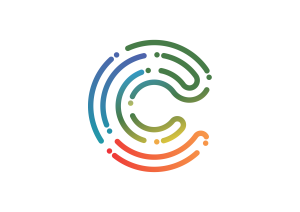Sectieoverzicht
-
-
Health is the state of physical, mental, and social well-being. It is not just being free from disease.
Factors can work together to affect physical and mental health. Diseases stop part of the body from working properly. A disease is a disorder that affects an organism's body, organs, tissues, or cells.
Factors that can have major effects on physical and mental health include:
- diet
- lifestyle factors such as alcohol and other drugs
- stress
- situations that may occur in a person's life
Immunity is the ability of the body to defend itself against disease-causing organisms.
Everyday our body encounters different types of bacteria and viruses, (sometimes called pathogens or microorganisms) but only a few cause diseases. The reason is our body can release antibodies against these and protect the body. This defence mechanism is called immunity.
Defence mechanisms help the body protect itself against the entry of microorganisms and diseases.
These defence mechanisms are:
- Skin – a barrier to microorganisms.
- Mucous membranes – present in the respiratory system to trap microorganisms.
- Blood clotting – stops blood escaping and prevents the entry of microorganisms where the skin has been damaged.
- white blood cells
If a microorganism does enter, then they may cause illness, but the body has a second line of defence to stop or minimise this infection. This is called the immune system. As a part of this there are two types of white blood cell called phagocytes and lymphocytes.
Phagocytes
Phagocytes surround any pathogens in the blood and engulf them. They are attracted to pathogens and bind to them.
The phagocytes membrane surrounds the pathogen and enzymes found inside the cell break down the pathogen to destroy it. As phagocytes do this to all pathogens that they encounter, they are called 'non-specific'.
Lymphocytes
Lymphocytes are another type of white blood cell. They recognise proteins on the surface of pathogens called antigens. Lymphocytes detect that these are foreign not naturally occurring within your body and produce antibodies. This can take a few days, during which time you may feel ill. The antibodies cause pathogens to stick together and make it easier for phagocytes to engulf them.
Some pathogens produce toxins which make you feel ill. Lymphocytes can also produce antitoxins to neutralise these toxins. Both the antibodies and antitoxins are highly specific to the antigen on the pathogen, thus the lymphocytes that produce them are called 'specific'.
If your body encounters a particular antigen, your lymphocytes might recognise it. If they do, they clone themselves to make enough antibodies to destroy the pathogen. Memory cells are also created which remain in your bloodstream and produce a quick response if the antigen is encountered again. You are then said to be immune.
Credit: Fuse Schools - Global Education.
The best immunity comes from having fought off a disease. However, in some cases such as a serious disease that could prove fatal when first infected, vaccination is used.
There are three different types of immunity:
Natural immunity happens after you get infected by a pathogen and your immune system responds by making antibodies to it. The infection could make you sick. But if you’re exposed to that germ in the future, your body’s defenses spot it and fight back with antibodies. This makes you less likely to get infected again.
Natural immunity to a disease weakens over time, though. How quickly or slowly this happens depends on the disease. For example, if someone gets natural immunity from a COVID-19 infection, the immunity may fade after 3 months. On the other hand, a child who gets measles is unlikely to ever catch it again.Vaccine-Induced Immunity
Vaccines can protect your immune system against diseases without making you sick. They safely boost your immunity by using a killed or weakened version of a germ to teach your body’s defenses to fight back against the real thing. Even though they can bring on side effects, they rarely make someone seriously ill.Vaccine-induced immunity and natural immunity are both types of active immunity. That’s the medical term for when you’re exposed to something that causes your immune system to make antibodies to a disease.
Passive Immunity: This is the other main type of immunity. Instead of your body making antibodies, you get passive immunity by receiving antibodies from another source. Passive immunity is fast acting and only works for a short period.
Breastfeeding provides a baby with natural passive immunity.
Anti-venom provides artificial passive immunity after a poisonous bite.
Herd Immunity: This when a contagious disease, like Covid-19, stops spreading easily because enough people in the community (or “herd”) have become immune to it. This can be because of natural active immunity, vaccine-induced immunity, or passive immunity.
Credit: Science Sauce
-
